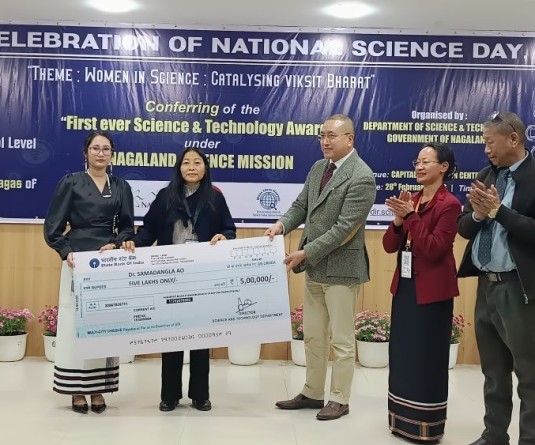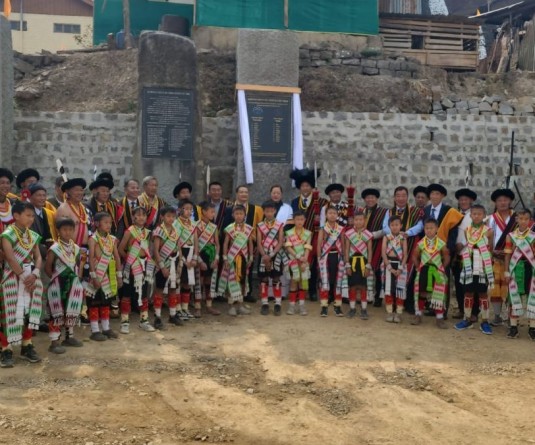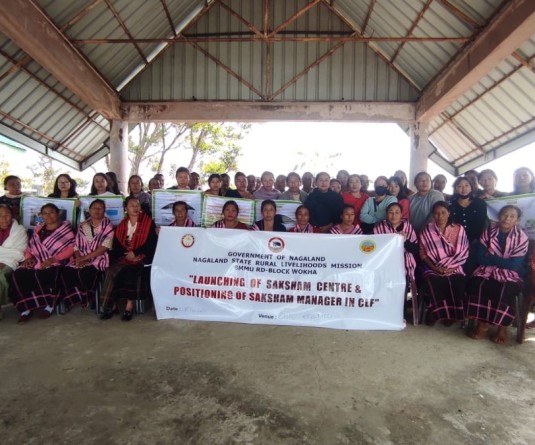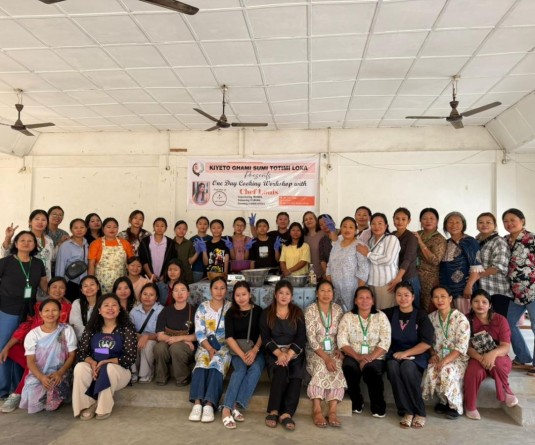Participants and others on second day of the two-day training on the Role of Young Leaders in Localizing SDGs in Nagaland on June 28.
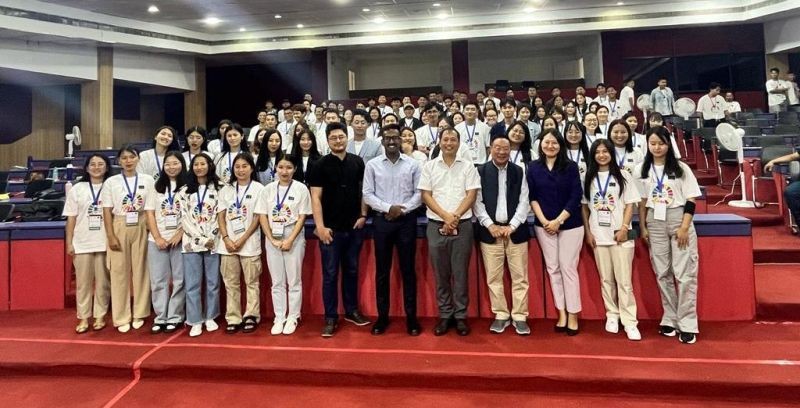
Kohima, June 28 (MExN): The second day of the two-day training on the ‘Role of Young Leaders in Localizing SDGs in Nagaland,’ started with a panel discussion on the role of economic growth and development in achieving sustainable development in Nagaland on June 28.
The panelists deliberated on the crucial roles the stakeholders in Nagaland have to undertake for a broad-based, inclusive, and sustainable economic growth that will provide better prospects, decent work, welfare, and equal opportunities to all, stated a press release received here.
The panel was moderated by Limabenla Jamir and speakers included Neichute Doulo, CEO & Founder, Entrepreneurs Associates, Shanavas C, Deputy Commissioner of Kohima, and Akhum David Longkumer, Asst. Professor Economic, Sriram College of Commerce, Delhi University.
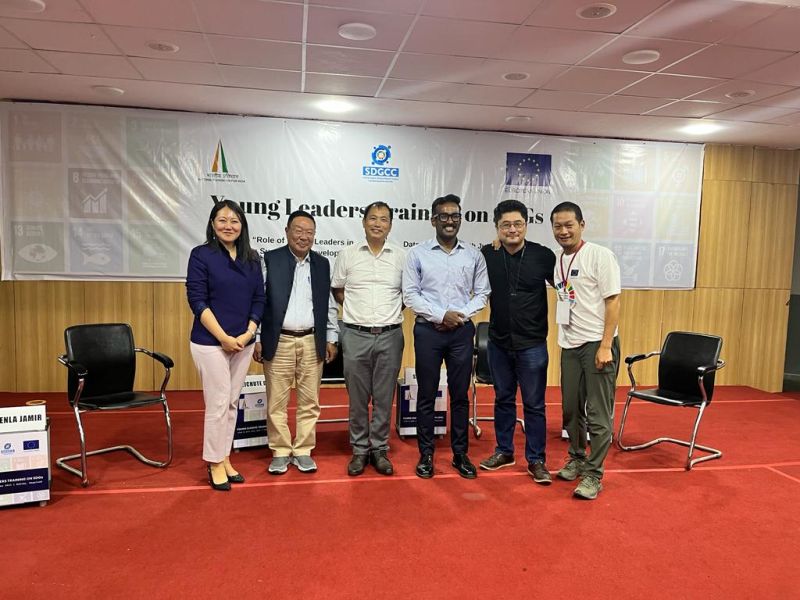
Speaking on the occasion, Shanavas C, IAS, Deputy Commissioner of Kohima, emphasized on the importance of consultations as a crucial part of strengthening government policies and called on young people to change their social mindsets and go in the right direction to bring in sustainable solutions. He also spoke about strategies for enhancing local industries, promoting entrepreneurship, and creating an enabling environment for sustainable economic growth.
Drawing from his research and academic background, Akhum David Longkumer emphasized on the importance of effective decentralization in the development processes and policies and continual move towards communitization; whereby village councils and grassroots stakeholders are equally involved so that accountability is created. He also pointed out that “political will should be used for further decentralization.”
Sharing his journey and experiences in establishing successful businesses in Nagaland, Neichute Doulo focused on the significance of social entrepreneurship, and the potential for economic development in Nagaland.
Duolo asked if lack of capital should be the reason for the lack of business initiatives in Nagaland. At length, he highlighted the mindsets around entrepreneurship in Nagaland and challenged the youths to change their mindsets. He also highlighted the need for government officials as well as the public to re-orient their perspectives on entrepreneurship and entrepreneurs. “Entrepreneurs in Nagaland have the potential to become revenue generators for the government of Nagaland.”
In connection to the change in mindset of the people, Duolo brought an example from a song ‘Coats of Many Colours’ by the Dolly Parton which goes; that one is only poor only if they choose to be.
The panel discussion provided an interactive platform for the participants to engage with the speakers, ask questions, and gain a comprehensive understanding of the role of economic growth, development, and decent growth in the localization of SDGs in Nagaland.
The session empowered the participants with actionable insights and strategies to contribute effectively to their communities and drive sustainable development in Nagaland. The collaborative efforts of the National Foundation for India, SDGCC Nagaland, and the European Union in organizing and supporting this initiative exemplify the commitment to sustainable development and the belief in the transformative power of young leaders.


